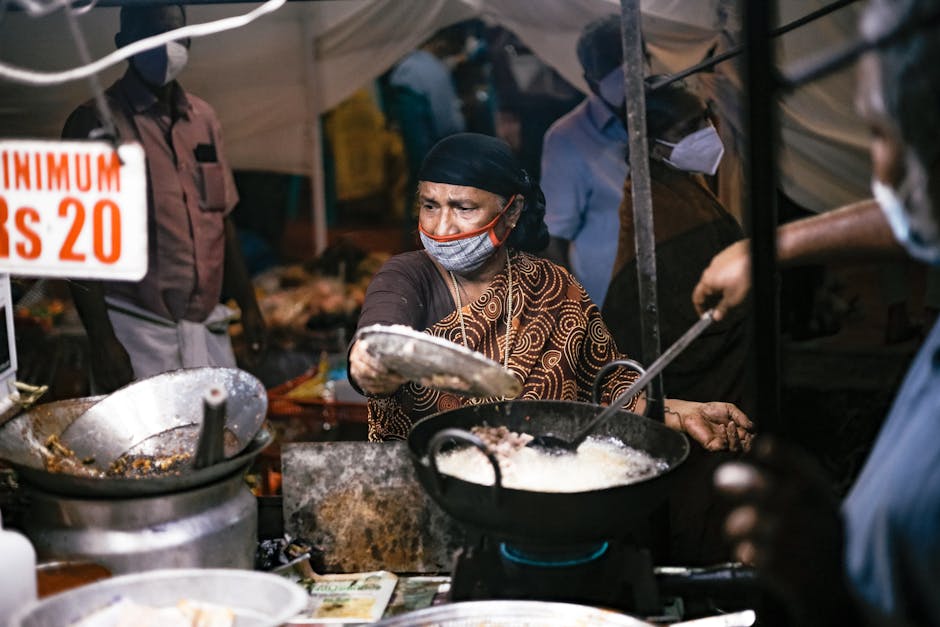GCC Employers Prefer South Asian Waiters
Economic Factors Driving the Preference for South Asian Staff
Firstly, economic considerations are paramount. The wage expectations of workers from South Asia often align more closely with the compensation structures offered by GCC restaurants and hotels. Consequently, this creates a mutually beneficial arrangement. Employers manage labor costs effectively while workers secure employment that provides valuable remittance opportunities. Additionally, the lower recruitment and relocation costs associated with South Asian nationals make them an economically attractive option for many GCC-based hospitality businesses.
Cultural Adaptability and Hospitality Ethos
Moreover, South Asian waiters often possess a deeply ingrained service ethos. This cultural emphasis on hospitality and respect for guests resonates perfectly with the high standards of GCC’s service industry. For example, many workers from countries like India, Nepal, and Sri Lanka are naturally deferential and attentive. Therefore, they seamlessly integrate into environments that demand impeccable customer service. This inherent cultural trait reduces training time and enhances the overall guest experience.
Linguistic Advantages of South Asian Waiters
Another critical factor is linguistic proficiency. English is widely spoken and taught in many South Asian countries. As a result, waiters from this region can effectively communicate with a diverse, international clientele. Furthermore, many are multilingual, often speaking Hindi, Urdu, or Malayalam in addition to English. This language skillset is a huge asset in the multicultural GCC region. It allows for smoother customer interactions and minimizes communication barriers.
Why GCC Restaurants Hire South Asian Waiting Staff
GCC restaurants operate in a highly competitive market. They require staff who are not only skilled but also reliable and hardworking. South Asian workers have built a strong reputation for diligence and a strong work ethic. Subsequently, employers perceive them as dependable employees who are willing to work long hours, especially during peak seasons and holidays. This reliability is crucial for maintaining operational efficiency and service quality in a fast-paced industry.
Work Ethic and Reliability in the Hospitality Sector
The strong work ethic commonly associated with South Asian workers is a significant draw. Many migrants are highly motivated by the goal of supporting families back home. This motivation translates into exceptional dedication and a low tendency for absenteeism. For instance, employers report higher retention rates and greater commitment from South Asian staff compared to other demographics. This stability is invaluable in reducing turnover costs and ensuring consistent service delivery.
Historical Migration Patterns and Established Networks
Historical ties and established migration corridors between South Asia and the GCC play a foundational role. For decades, there has been a steady flow of labor from the subcontinent to the Gulf states. This has created robust recruitment networks and streamlined processes. Recruitment agencies specialize in sourcing candidates, handling visas, and facilitating logistics. Therefore, it is simply more efficient for GCC employers to tap into these existing, well-oiled channels.
Training and Skill Development Programs
Many South Asian nations have developed vocational training programs specifically tailored for the GCC hospitality market. These programs equip potential workers with relevant skills, such as food safety knowledge, wine service basics, and customer engagement techniques. Hence, employers often find that hires from these regions require less initial training. They can integrate into the team and start contributing to revenue generation much faster.
Demand for South Asian Waiters in GCC Countries
The demand for South Asian waiters remains consistently high. This is evidenced by job market analyses and visa issuance statistics from GCC nations. The hospitality sector’s growth, particularly in the UAE and Saudi Arabia, continues to fuel this demand. Projects like Saudi Vision 2030, which aims to boost tourism, will likely intensify the need for skilled service staff. Consequently, this preference is expected to persist for the foreseeable future.
Overcoming Challenges: Integration and Fair Treatment
However, this hiring preference is not without its challenges. Issues related to workers’ rights, fair wages, and cultural integration require ongoing attention. Progressive employers are implementing better support systems, cultural orientation programs, and ensuring compliance with international labor standards. Addressing these concerns is essential for sustainable and ethical hiring practices that benefit both employers and employees.
The Future of Hospitality Hiring in the GCC
Looking ahead, the landscape may gradually evolve. GCC governments are implementing policies to increase national workforce participation in the private sector, known as localization. Nonetheless, the specialized nature of hospitality and the current demand levels suggest that South Asian waiters will remain a vital component of the industry. The key will be balancing economic efficiency with ethical employment practices and continued investment in staff development.
Frequently Asked Questions
Why do GCC employers specifically prefer South Asian waiters?
GCC employers prefer South Asian waiters due to a combination of factors including strong English language skills, a cultural predisposition towards hospitality, economic factors related to wage expectations, and a renowned strong work ethic and reliability.
Which South Asian countries are most common for waiters in the GCC?
Waiters commonly come from India, Nepal, Sri Lanka, Bangladesh, and Pakistan. Each country offers a large pool of English-speaking candidates seeking employment opportunities abroad.
Are there any legal preferences for hiring South Asians in the GCC?
No, there are no legal mandates that prefer one nationality over another. The preference is primarily market-driven, based on the factors of cost, skill availability, and established recruitment networks.
How does the Kafala system influence this hiring trend?
While the traditional Kafala (sponsorship) system is being reformed in many GCC states, it historically created structured pathways for bringing in foreign labor. Established channels for South Asian workers made the process more efficient for employers.
What are the main challenges faced by South Asian waiters in the GCC?
Challenges can include cultural adjustment, distance from family, navigating labor rights, and in some cases, potential vulnerability to exploitation. However, many governments and employers are actively working to improve conditions.
Is the preference for South Asian waiting staff likely to change?
While localization policies may create more opportunities for GCC nationals in other sectors, the specific skill set and economic model of the hospitality industry suggests that demand for South Asian waiters will remain strong for the foreseeable future.
Conclusion
In conclusion, the preference among GCC employers for South Asian waiters is a multifaceted phenomenon. It is firmly rooted in practical economic benefits, reliable service quality, and linguistic capabilities. Furthermore, historical migration patterns have solidified this trend into a standard industry practice. Finally, understanding these factors is crucial for anyone involved in the GCC hospitality sector. If you are an employer looking to navigate these hiring practices effectively or require guidance on compliant recruitment strategies, our expert team is ready to assist. Contact us today to optimize your workforce planning and ensure both efficiency and ethical compliance.




